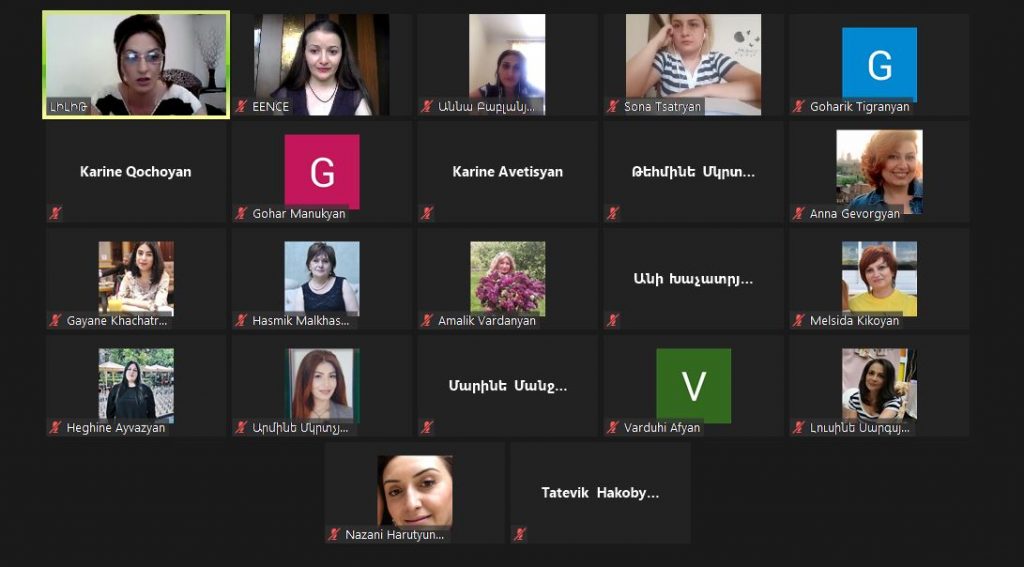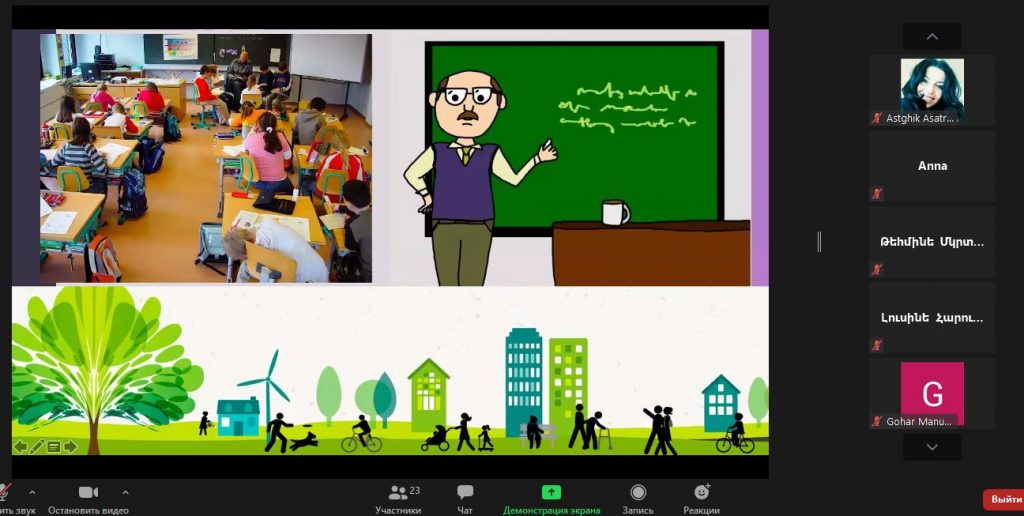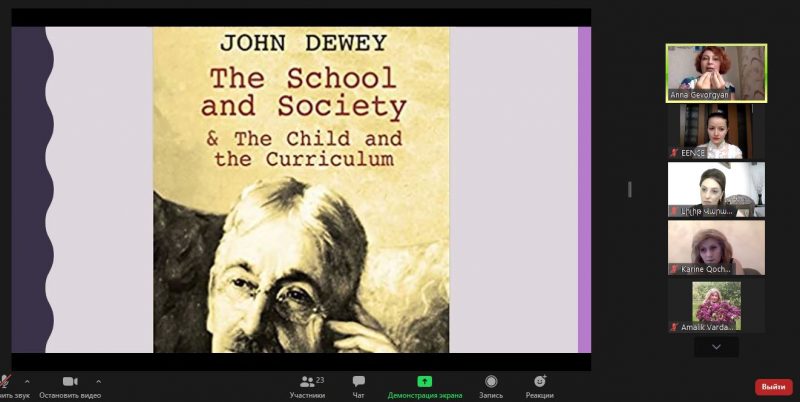Service-learning as a Methodology for Teaching Civics in Schools
In 2020, the EENCE Civic Education Week promoted citizenship education under the umbrella of “Art of living together” and aimed to provide the best practices in citizenship education in the region. Driven by this objective, the EduCare Educational Foundation applied to showcase service-learning as a methodology for teaching civics in schools.

The rationale was to introduce service learning as a tool for civic pedagogy to the teachers and civic education trainers and discuss its potential for implementation in the Armenian schools.
The topic was seen relevant in terms of the current school curricular reforms in the country, whereby the methodology of service learning could be seen as a potential approach to the project-based and research-based standards of civics in upper secondary school level. Importantly, it was also a chance for the teachers to rethink their pedagogical practices of teaching civics and help their learners to set the bridge between the theory of democracy and its practice and connect classroom learning and the community reality.

As such, service-learning allows young people to devote their time to working over a social issue in their community, while at the same time helps develop their critical and analytical thinking skills to acknowledge and promote respect for human rights.
Through service-learning, young people learn how to extract the rights embedded in every service and look at them. For instance, by combining a service project about children out of school with learning about the right to education, young people lean about the violations of the right to mandatory 12-year education in Armenia and design ways to address this violation, for instance, by exploring home-schooling options for such children, or exploring financial barriers to their access.
The Foundation, with the support from the national coordination of EENCE and Youth is Power NGO, recruited 24 interested participants for the workshop on service learning. The participants were from all regions of Armenia. The majority represented the capital city Yerevan (26.9%), the region of Kotayk (19.2%), Shirak and Armavir (11.5%). Most of the participants taught civics and history in public schools across the country (40%).
The workshop was run online on August 17 and 18, 2020 for three hours each day.
Its learning outcomes were to enable the participants to a) identify key features of service-learning in their own teaching of civics or human rights education; b) to link its elements and techniques with concrete social issues in their communities to be delivered in their schools.
The sessions of the workshop were divided into two themes.
Day 1 introduced the concept of service learning and why it was important for the teachers. It covered the techniques and tools for implementing service-learning in the Armenian schools and allowed the participants to practice them during the session with their peers.
Day 2 focused on the feasibility of service-learning in the Armenian schools considering the new curricular reforms. Participants discussed the structure of draft standards for teaching civics, discussed their relevance and practicability and did practical activities based on discussed ideas.
Overall, the workshop was well received by the participants evidenced by their engagement throughout the sessions and willingness to perform tasks and home assignments. The participants acknowledged its importance and novelty and proposed to extend the scope of the workshop with more outreach to public schools in the country.
About the trainers:
Anna Gevorgyan, MA Lifelong Learning, UCL, has been leading teacher training schemes for local and international pre- and in-service teachers for about 10 years. She is experienced in higher education program policy and management, both locally and in the context of her work with international organizations. Her research interests include aspects of higher education policy and practice, language teaching and pedagogy, rights-based approach to education.
Goharik Tigranyan, MA Human Rights and Democratization, YSU, she has been working in the field of non-formal education conducting trainings on civic engagement, intercultural communication and human rights. Since 2017, she has been studying the aspects relative to the right to quality education, right-based approach to education, as well as the role of civic education as a component of the right to education and its role in democratic processes.


